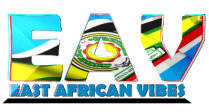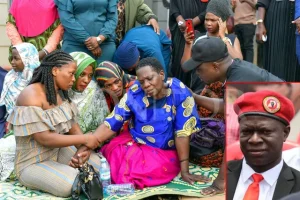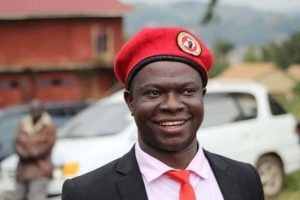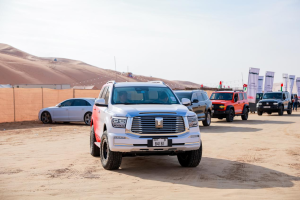Following Nyendo-Mukungwe MP Mathias Mpuuga’s recent thanksgiving ceremony at Kitovu Sports Arena in Masaka City, tensions within the National Unity Platform (NUP) have escalated. A councilor who attended the event faced an attack from NUP supporters who accused him of betrayal amid the party’s internal rifts.
NUP, led by Robert Kyagulanyi, popularly known as Bobi Wine, has been grappling with internal dissent involving Mpuuga, formerly the leader of the opposition in Parliament.
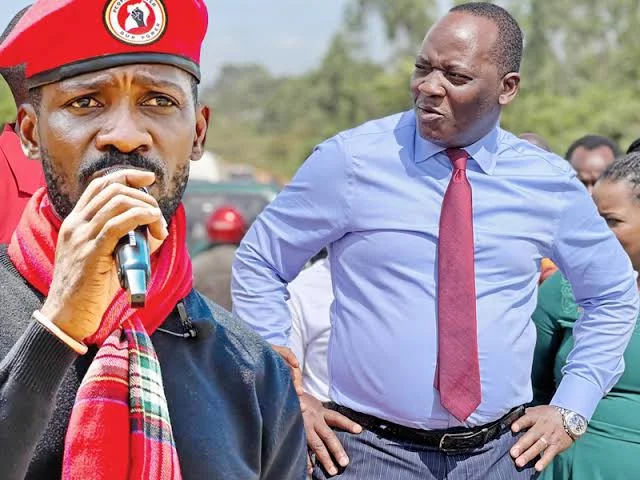
This leadership dispute intensified when Mpuuga was replaced by first-time MP Joel Ssenyonyi, sparking divisions within the party.
The discord came to a head weeks ago when Bobi Wine conducted a major rally in Masaka, which Mpuuga and a minority of supportive MPs skipped. Subsequently, police suspended Bobi Wine’s nationwide consultative rallies. In response, Mpuuga hosted his thanksgiving mass on June 21, attended by a notable gathering including 12 MPs and a minister.
Fred Kiyimba, a relatively unknown NUP councilor from Mukono District, faced criticism from fellow party members for attending Mpuuga’s event.
He was branded a traitor for allegedly undermining NUP’s principles and its mission to challenge Uganda’s long-standing Museveni regime.
The discontent extends beyond Masaka, with NUP members at Makerere Kavule and Mukono expressing hostility towards Mpuuga, citing his strained relationship with Bobi Wine and allegations of financial misconduct involving a controversial Shs1.7bn cash award shared among Mpuuga and three parliament commissioners.
Despite being relieved of his leadership positions within NUP, Mpuuga remains defiant, refusing to relinquish his commissioner role and vowing allegiance to the party.
This stance has further exacerbated tensions within NUP ranks, with accusations of external interference from rival political factions complicating the internal dynamics.
The controversy surrounding Mpuuga’s leadership ambitions and the broader implications for NUP’s future underscore the challenges facing Uganda’s opposition movement in its struggle against entrenched political powers.
Hon. Mathias Mpuuga’s relationship with Bobi Wine and the ensuing infighting within the National Unity Platform (NUP) encapsulates a complex narrative of political ambition, ideological differences, and strategic disagreements.
Mpuuga, a prominent figure within NUP and a former Leader of Opposition in Parliament, has found himself at odds with Bobi Wine, the charismatic leader and face of the party.
The rift between Mpuuga and Bobi Wine deepened significantly after Mpuuga was replaced as the Leader of Opposition in Parliament by Joel Ssenyonyi, a move perceived by many as orchestrated by Bobi Wine to consolidate his control over the party’s leadership.
This leadership reshuffle marked a pivotal moment in NUP’s internal dynamics, triggering a cascade of events that highlighted underlying tensions and divergent visions within the party.
One of the central points of contention between Mpuuga and Bobi Wine revolves around strategic decisions and political alliances.
Mpuuga, known for his pragmatism and strategic acumen, has advocated for a nuanced approach to opposition politics, often emphasizing coalition-building and engagement with other political forces beyond NUP’s traditional base. In contrast, Bobi Wine’s leadership style tends to lean towards a more confrontational stance against the ruling regime, emphasizing mass mobilization and street protests as tools for political change.
The disagreement over strategy became particularly pronounced during the run-up to Uganda’s elections, where Bobi Wine adopted a robust campaign strategy centered on defiance and direct confrontation with President Museveni’s government.
Mpuuga, while supportive of the broader objectives of regime change, advocated for a more structured and inclusive approach that could appeal to a wider segment of the electorate, including moderate voters disillusioned with Museveni’s long tenure.
The divergent strategies culminated in strategic decisions that exacerbated tensions within NUP. For instance, Mpuuga’s absence from Bobi Wine’s rallies and events was perceived by some as a deliberate attempt to distance himself from Bobi Wine’s confrontational approach.
Conversely, Bobi Wine’s supporters accused Mpuuga and his allies of lacking commitment to the party’s revolutionary ideals and undermining the collective struggle against authoritarianism.
The personal dynamics between Mpuuga and Bobi Wine also played a role in exacerbating the rift. Mpuuga, a seasoned politician with a background in parliamentary diplomacy, often sought to navigate the intricate corridors of power with tact and strategic foresight.
In contrast, Bobi Wine’s rise to political prominence was propelled by his status as a popular musician-turned-activist, which brought him widespread grassroots support but also led to occasional friction with established political figures like Mpuuga.
Moreover, allegations of financial impropriety further strained relations between Mpuuga and Bobi Wine. Reports of a controversial cash award shared among Mpuuga and other parliament commissioners fueled speculation and accusations of corruption, tarnishing NUP’s image and intensifying internal scrutiny and mistrust.
The fallout between Mpuuga and Bobi Wine has had profound implications for NUP’s cohesion and effectiveness as an opposition force.
While both leaders share a commitment to challenging Uganda’s entrenched political establishment, their differing leadership styles, strategic preferences, and personal dynamics have underscored the challenges of maintaining unity within a diverse and ideologically fluid political movement.
Looking ahead, the resolution of the infighting between Mpuuga and Bobi Wine will likely hinge on their ability to reconcile competing visions for NUP’s future and navigate the delicate balance between revolutionary zeal and pragmatic governance.
As Uganda’s political landscape continues to evolve, the fate of NUP and its ability to effectively challenge President Museveni’s rule will depend on its leaders’ capacity to forge consensus and harness collective strengths in pursuit of shared objectives.
![]()
